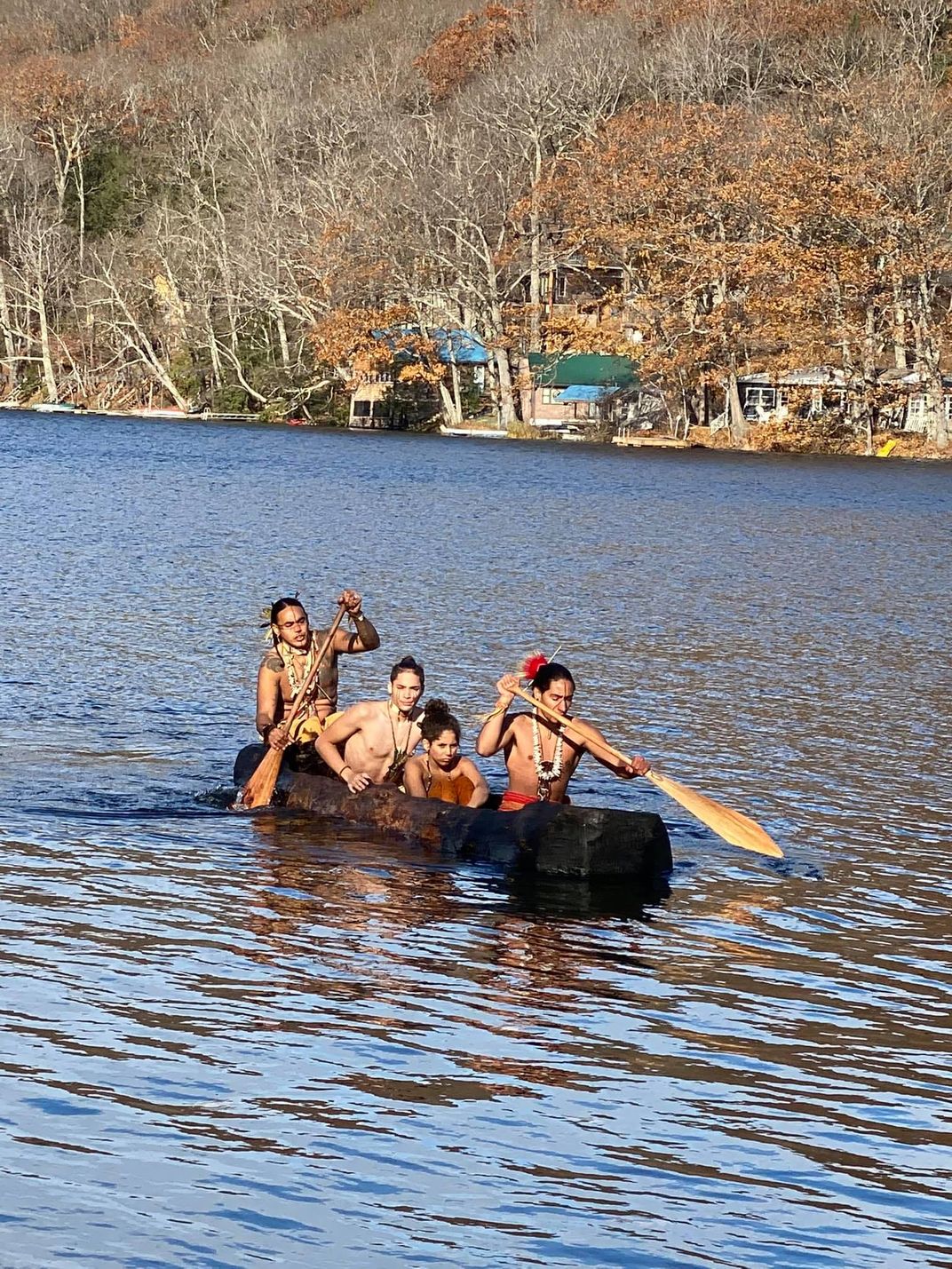NATIONAL MUSEUM OF THE AMERICAN INDIAN
‘If You Lived During the Plimoth Thanksgiving’ by Chris Newell Exposes New Truths About a Major American Holiday
Just in time for Thanksgiving, this newly released book explains the events surrounding the original feast at Plimoth – from a Native perspective.
:focal(600x500:601x501)/https://tf-cmsv2-smithsonianmag-media.s3.amazonaws.com/filer_public/25/c2/25c2b4a5-5886-46fc-81ad-c9601778a937/newell_thanksgiving_book_cover.jpeg)
In If You Lived During Plimoth Thanksgiving (Scholastic Press, 92 pp.), author Chris Newell, a citizen of the Passamaquoddy Tribe, thoughtfully explains terminology of the time period, starting with the original spelling of Plimoth contrasting to the modern spelling Plymouth. “The settlers from the Mayflower named their settlement Plimoth Plantation,” Newell explains. Another important aspect that he points out is the difference in value systems of the Natives and settlers of the 1600’s which included land ownership, the concept of wealth and currency, and the patriarchal society of the settlers vs. the matriarchal society of the Wampanoag who they encountered.
Using well-researched illustrations by Winona Nelson, Leech Lake Band of Minnesota Chippewa; easy to read maps; and “Did You Know” thinking points, teachers and those who seek to learn facts about the Thanksgiving that took place in 1621 will gain new knowledge to share with students and young people. Controversial subjects such as the deadly disease epidemic known as “The Great Dying,” slavery and loss of land associated with European contact are carefully clarified.
The very heart of the American Thanksgiving are explained in three chapters: What happened at the feast in Plimoth in 1621?; What was a “thanksgiving” for English colonists in 1621?; and What was a “thanksgiving” for Wampanoag and other Native peoples in the region in 1621? The actual events that took place differ from what most people have learned in previously taught curricula.
One aspect that I especially appreciated were the final chapters that continue Thanksgiving dialog where other writings leave off: How and when did Thanksgiving become a national holiday?; Why do people in the United States celebrate Thanksgiving today?; Do other countries have a Thanksgiving holiday?; Do Native peoples celebrate Thanksgiving?; and What are holidays that honor Native history? For the answers to these questions, you just may have to read the book!

“When children are young, they are often exposed to antiquated images of American Indians through cartoons, books, and movies. But Thanksgiving re-enactments may be their most active personal encounter with Indian America, however poorly imagined, and many American children associate Thanksgiving actions and images with Indian culture for the rest of their lives. These cultural misunderstandings and stereotypical images perpetuate historical inaccuracy.
Tolerance of mockery by teachers is a great concern to Native parents. Much harm has been done to generations of Indian people by perpetuating negative and harmful images in young minds. Presenting Thanksgiving to children as primarily a happy time trivializes our shared history and teaches a half-truth. And while I agree that elementary school children who celebrate the first Thanksgiving in their classrooms are too young to hear the truth, educators need to share Thanksgiving facts in all American schools sometime before high school graduation.” Dennis Zotigh
For more information about Thanksgiving from Native staff members of the National Museum of the American Indian, visit these links:
https://www.smithsonianmag.com/blogs/national-museum-american-indian/2019/11/27/do-american-indians-celebrate-thanksgiving/
